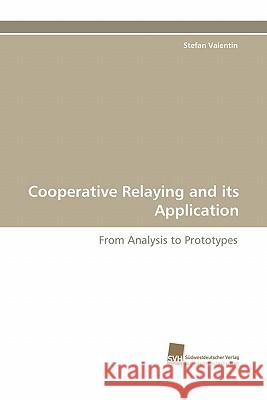Cooperative Relaying and Its Application » książka
Cooperative Relaying and Its Application
ISBN-13: 9783838118581 / Angielski / Miękka / 2010 / 224 str.
Cooperative relaying is a promising approach to improve data rate and coverage in wireless networks. Although the benefits of cooperation have been consistently shown in theory, the performance of realistic cooperative networks is still not clear. Bridging this gap between theory and practice is the objective of this thesis. This is done in three steps. First, practical selection relaying protocols are analyzed under realistic assumptions. Second, efficient protocol extensions are described and, third, a prototype for cooperative Wireless Local Area Networks (WLANs) is demonstrated. Based on theoretical findings and extensive field measurements, this thesis provides insight into the performance regions of realistic cooperative networks and into implementing cooperative devices. Furthermore, the basic elements of cooperative systems are introduced and a concise taxonomy of common designs is given. This text is, thus, helpful for researchers and engineers who implement cooperative systems, plan to support their networks by relaying, or look for an introduction in the field.











